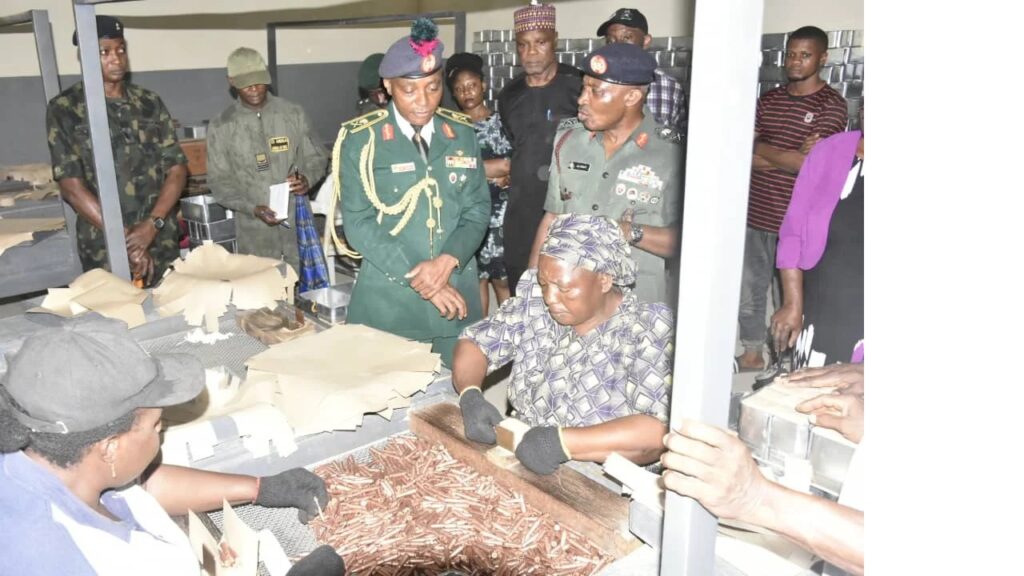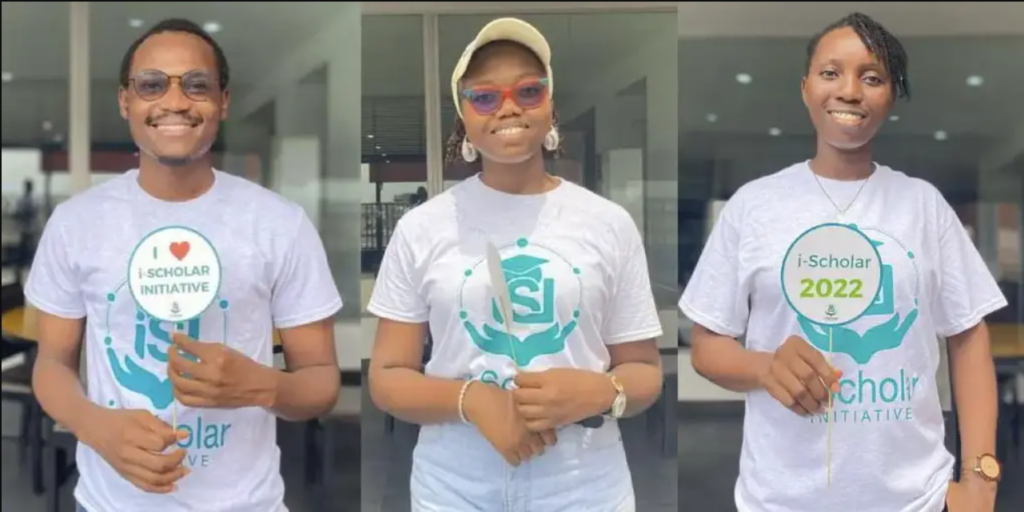
.Five presidents, Gowon, Obasanjo, Jonathan, others laud Adesina’s Pan-African exploits
President of the African Development Bank (AfDB) Group, Dr Akinwumi Adesina, has hinged Nigeria’s socio-economic turnaround on the pursuit of aggressive policies in the area of food security, universal health coverage, housing, education and true federalism and fiscal accountability.
At his conferment with the 2023 Obafemi Awolowo Prize for Leadership, yesterday, Adesina said the five-fold people-centred policies, if practised across the 36 states, would pull Nigeria from the brink and return her on the path of continental progress.
At the colourful ceremony held in Lagos on Wednesday, no fewer than five African presidents in attendance, former Heads of State, and eminent statesman, among others, testified to Adesina’s exemplary leadership on the African continent and deserving of the prestigious award.
Among those who attended and lauded Adesina’s exemplarity are President Bola Tinubu, represented by Vice President Kashim Shettima, President of Tanzania and the chairman of the occasion, Samia Hassan; President of Comoros, Azali Assoumani; President of Ethiopia, Sahle-Work Zewde, and Togo President, Faure Gnassingbé, who was represented by the Prime Minister, Victoire Dogbé. Also in attendance are former presidents Yakubu Gowon, Olusegun Obasanjo, Goodluck Jonathan, former Ghanaian President, John Dramani Mahama, former Vice President, Namadi Sambo, and former Secretary General of the Commonwealth, Emeka Anyaoku; state governors, monarchs, among others.
Conspicuously absent, however, was former Vice President and in-law to the Awolowo family, Prof. Yemi Osinbajo. Adesina in a lecture, titled: ‘Making a New Nigeria: Welfarist Policies and People-Centred Development,’ said he had imbibed the philosophy and virtues of the great sage from childhood.
He said Awolowo mirrored the hope of a great Nigeria. The hope that education will be free at all levels. Hope that there will be health for all. Hope that the remarkable transformation witnessed in the Western region of Nigeria, in education, agriculture, health, and infrastructure, undergirded by a highly professional and disciplined civil service, will soon take hold in Nigeria. “Like the refrains of an orchestra, the sounds of Awo, Awo, filled the air, as our hopes were raised. We could see a new Nigeria. Alas, this was not to be. Nigeria missed its best opportunity to be great under President Awolowo. Chief Emeka Ojukwu, said of him “the best President that Nigeria never had.” Though Nigeria missed its way, Adesina said he had remained consistently influenced by the same drive as Chief Awolowo.
“I promised myself then that if I ever got into any public position, I would run welfarist and people-centric policies.
“My heartbeat has always been about people. Nothing more. Nothing less. My life is only as useful to the extent that it is used by God to do my utmost to transform the lives of people.
“Today, I accept this Prize as a trustee of hope for millions of our people. You bestow upon me this honour at a momentous period of great global challenges, from rising debt, climate change, fragilities, and vulnerabilities,” he said.
Adesina added that while the work of making Nigeria great, and by implication making Africa great, is still in progress, there must be an urgent shift to the five cardinal policies.
According to him, it begins with Nigeria completely transforming its rural economies to ensure food security for all. That is because some 70 per cent of the population lives in rural areas and in extreme poverty.
“At the heart of transforming rural economies is agriculture, the main source of livelihoods. When agriculture moves away from being a way of life to a business, everything changes. Higher incomes and wages from agribusinesses will support education and health, and spur even greater job creation for millions of youths.,” he said.
He observed that Awolowo led agricultural transformation in the 1960s and he toed the path aggressively when he served as minister of agriculture and rural development from 2011-2015.
“Many call this period the ‘farm revolution’ years, as Nigeria witnessed an impressive transformation of its agricultural sector. With farmer-centric policies, we delivered improved seeds and fertilizers for 15 million farmers. We delivered millions of cocoa seedlings across southern Nigeria. Rural economies boomed.
“Local well-packaged rice took over the market. The price of rice at the time was N6,000 per bag, which helped to stem food price inflation. Unfortunately, today, that same bag of rice, just nine years later, is N77,000 per bag. That 12-fold price increase unfortunately puts rice, a basic staple, beyond the reach of millions of people,” he said.
Next to food, Nigeria needs healthcare and education for all because smart governments provide universal basic health coverage and enlightenment for their citizens.
He observed that Nigeria accounts for 15 per cent of the total population of out-of-school children, according to UNICEF, with over 10.2 million at the primary school level, and 8.1 million at the Junior Secondary School.
“This is not a gold medal Nigeria should be proud of. The problem is both acute and alarming in Northern Nigeria. Urgent public policies, coupled with community sensitisation and incentives for schooling are needed, if this trend is to be reversed.
“Public incentives such as free and compulsory primary and secondary education should be put in place, along with massive investments in training and better salaries for teachers, building quality and safe classrooms, and school feeding programmes.
“With only one per cent of the population enrolled, Nigeria is currently not educating enough of its people at the university level. The poor funding of universities, a lack of basic infrastructure, poor incentives for faculty and staff, and incessant strikes due to wage disputes, have almost crippled the university system.
“As a result, there is a mass exodus out of Nigerian universities, with 128,770 Nigerian students “Japa-ing” (moving) to study in UK Universities alone, between 2015 and 2022, according to the Higher Education Agency of the United Kingdom.
“The mass exodus of students pales when compared to those of skilled professionals. From doctors to engineers, architects, lawyers, IT specialists, bankers, and medical technicians, Nigeria is witnessing a massive depletion of its human capital. This human capital haemorrhage will slow down economic growth, performance and overall development and competitiveness of the economy,” he said.
The AfDB president said further that Nigeria also needs government accountability and fiscal decentralisation for true federalism. He said a government without citizen accountability is synonymous with democratic dictatorship. He advocated for e-governance systems to enhance transparency and accountability of governments, in service of the people, saying that is what people-centred governance is all about.
“To succeed with much-needed welfarist and people-centred policies across Nigeria, it is necessary to change the governance system and decentralise governance to States to provide greater autonomy.
“States have tremendous potential to become even more financially autonomous through greater fiscal prudence. If States focus on unlocking the huge resources they have, based on areas of comparative advantage, they will rapidly expand wealth for their people. With such increased wealth, they will be able to access capital markets and secure long-term financing to fast-track their growth and development.
“States that adopt this strategy would have less of a need for monthly trips to Abuja for grants. Instead, part of their federal revenue allocations can be saved as internal ‘state sovereign wealth funds’. This can then be used as a guarantee against borrowings from capital markets. In essence, they would be free from needing to exclusively rely on the federal government.
“To get out of the economic quagmire, there is a compelling need for the restructuring of Nigeria. Restructuring should not be driven by political expediency, but by economic and financial viability. Economic and financial viability are the necessary and sufficient conditions for political viability,” he said.

Adesina is the fourth honouree since the award was instituted over a decade ago and was formally inducted into the exclusive league of ‘Awo Laureates’, made up of Prof. Wole Soyinka, former South African President, Thabo Mbeki and Are Afe Babalola.
President Bola Tinubu, in his message read by Vice President Shettima, extolled the virtues of the first premier of the western region, Chief Obafemi Awolowo, saying his principles have withstood the tests of time and geography.
Just like the late sage, whom he said had been a dependable ally of time, the President identified the power of time to judge fairly, noting that it is only time that defines the tough decisions, character and sacrifices a leader has to make to make a difference.
Tinubu congratulated Adeṣina for clinching the 2023 Obafemi Awolowo Prize for Leadership, describing him as a “maverick change-maker who has not only flown our flag all over the world but has dazzled the world with the novelty of his thoughts, indispensability of his ideas, and dynamism of his actions.”
President of Tanzania, Hassan, added that Awo’s legacy is beyond the shores of Nigeria, which is why they have come to felicitate with Adesina for exemplifying Awolowo’s virtues and principles across the African continent.
Hassan described Adesina as one of the few visionary and dynamic leaders on the continent. She relished Adesina’s transformation of the AfDB into a financial institution of global repute and respect. Hassan’s counterpart at the Union of Comoros, Assoumani, noted that Adesina works his talks and in about seven years at the Bank, he has touched more than 335 million lives across the continent.
General Yakubu Gowon, who is the Chairman of the Obafemi Awolowo Foundation, said: “The choice of Dr Akinwumi Adesina can only be described as the best. He represents the best of Nigeria, hardworking and diligent.”
Founding Member/Executive Director Obafemi Awolowo Foundation, Dr Olatokunbo Awolowo Dosumu, in her welcome address, said the Obafemi Awolowo Prize for Leadership was instituted by the Obafemi Awolowo Foundation 12 years ago to encourage, recognise, reward, and celebrate excellence in leadership and that the foundation has painstakingly followed that mandate while carefully nurturing and protecting the integrity of the award and its processes.












